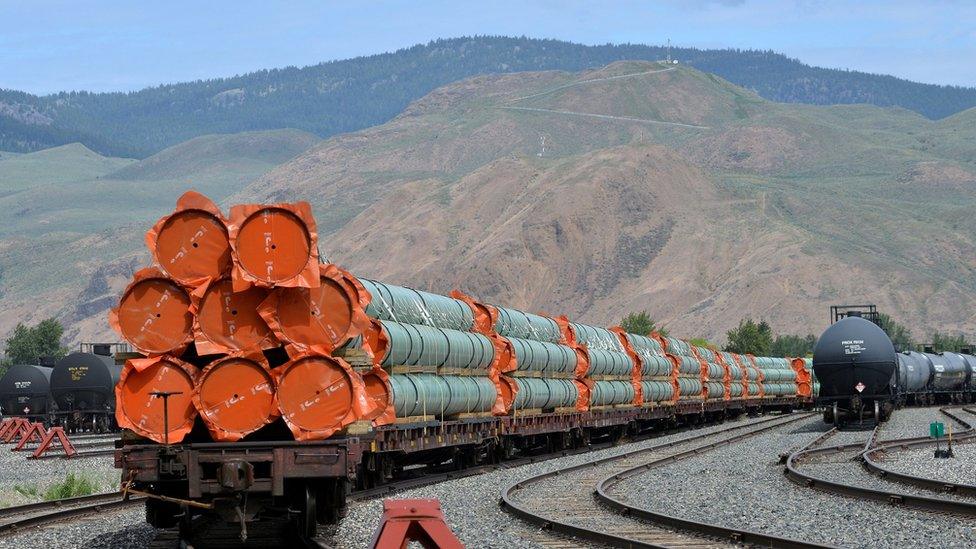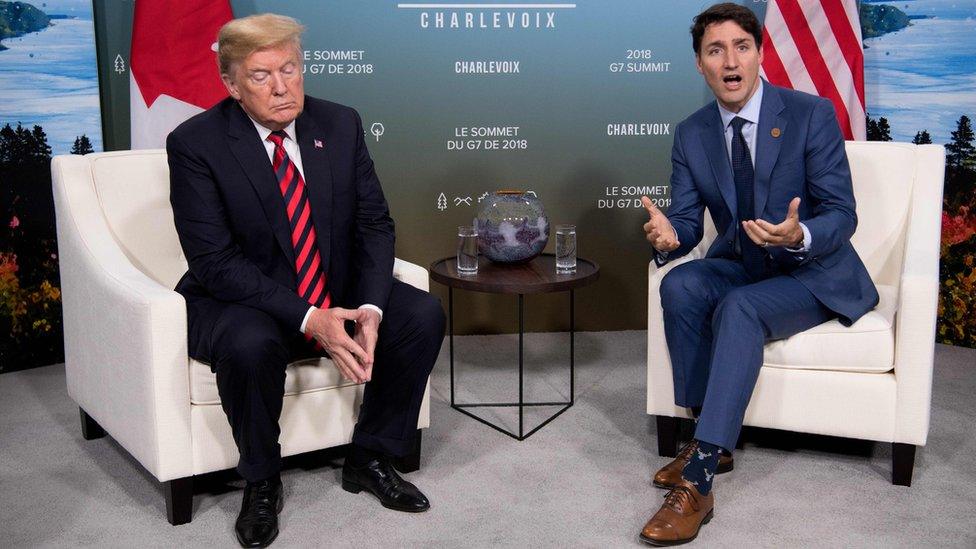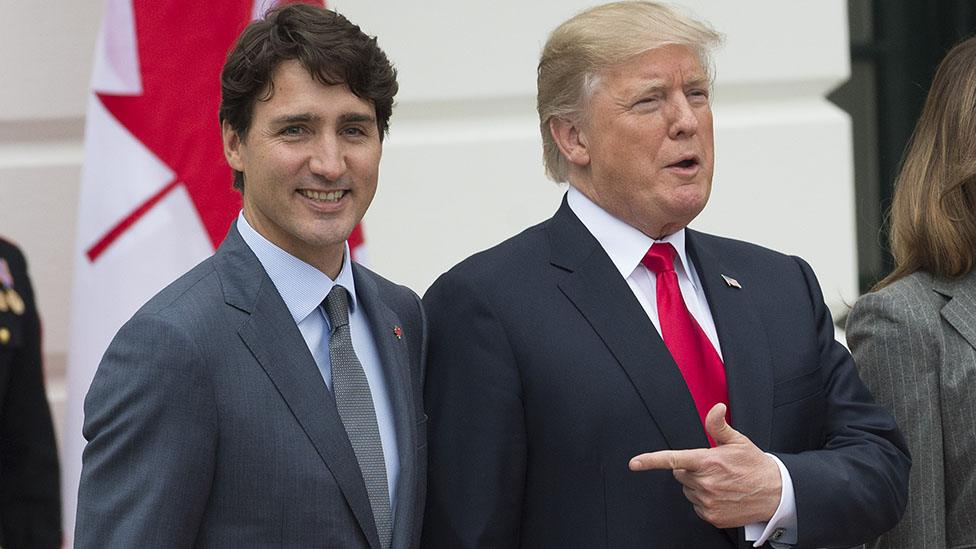Canada 'will not back down' over US metals tariffs
- Published

Canada will "not back down" in the face of new US tariffs on steel and aluminium, according to the country's foreign minister.
Chrystia Freeland spoke as officials unveiled a C$2bn (US$1.5bn; £1.15bn) package to support the country's steel and aluminium industries.
Retaliatory tariffs on C$16.6bn worth of US products are due to come into effect on 1 July.
Ms Freeland said US tariffs left Canada "no choice" but to respond.
Canada's tariffs target US steel and aluminium products.
It also includes items such as yoghurt, ketchup and orange juice, which are made in key political battlegrounds such as Wisconsin, Pennsylvania and Florida.
The list of products is intended to match "dollar for dollar" the US tariffs, which came into effect on 1 June, Ms Freeland said.
"Our approach is we will not escalate but equally we will not back down," she said.
'Too much at stake'
The US and Canada are among each other's top trade partners, exchanging nearly US$700bn in goods and services last year.
But trade relations between the two countries have grown tense, amid disputes over issues such as lumber, dairy and wine.
Dairy wars: Why is Trump threatening Canada over milk?
The two countries, with Mexico, are also locked in negotiations over the North American Free Trade Agreement.
In May, when the US said it would not extend exemptions from the tariffs to Canada and Mexico, it said those talks were moving too slowly.
Ms Freeland said the discussions continue and will heat up again after the Mexican election on Sunday. She said she is confident that "common sense" will prevail.
"There's too much at stake," she said.
'A good first step'
The US is the top foreign market for Canada's steel and aluminium, while Canada is the destination for more than half of US steel exports.
In Canada, the steel and aluminium industries employ more than 33,500 people, according to the government.
About 6,000 jobs in Canada are at risk due to the US tariffs, the CD Howe Institute has estimated.

President Donald Trump has complained about Canadian Prime Minister Justin Trudeau on Twitter
Ken Neumann, director in Canada for the United Steelworkers union, said the aid package, which includes loan assistance, should help companies, but the support for workers is more "modest".
The package "a good first step that will need to be expanded if the trade dispute continues beyond the short-term", he said.
The US is also exposed to thousands of potential job losses, as higher costs for steel and aluminium hurt US firms and trigger retaliation from Canada and elsewhere.
In addition to Canada, the European Union and Mexico are among those that have announced tariffs on US goods in response.
The Trump administration has said the tariffs are necessary to protect the steel and aluminium industries, arguing that their success is vital to America's national security.
Several countries, including Canada, are challenging that rationale with complaints against the US to the World Trade Organisation (WTO).
- Published3 May 2018

- Published12 June 2018
